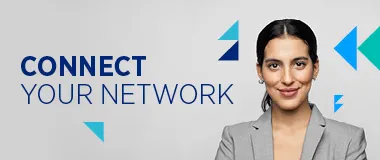What to expect in a second job interview

Your first job interview went well and the hiring manager is seriously considering you for the job. Congratulations, this means you are now invited for a second job interview!
The good news is that you are one step closer to securing the job. However, you may be feeling unsure about how this next interview will differ from the first and how best to prepare for your second round interview. Below, we provide some clarity by outlining the differences between first and second round interviews, the purpose of the second, and tips to help you seal the deal.
First v second interview: what is the difference?
During your first round interview, you will probably have met with someone from HR, as well as your potential boss. They were assessing your background, career to date, skills and experience to ensure you are a suitable person for the job.
At the second interview stage, you will most likely be meeting one or more people at a senior level, who will ultimately have the final say on the hiring decision. It’s a good idea, therefore, to confirm with your recruiter who will be conducting this interview.
Another difference between your first and second round interviews lies in the objectives of your interviewers. There are several key points of information they want to attain during the second interview and you should expect the interview questions they ask around these topics (see below) to be more searching this time.
What the interviewer is assessing you on
The main areas that are covered in a second interview are as follows. Your interviewers will expect you to give fuller answers to interview questions covering these themes, so make sure you prepare in advance.
1. Your interest in the job and organisation
In a second interview, your interviewer wants to ensure you are still interested in the opportunity now that you know more about it. Your level of enthusiasm often directly correlates with how well you would perform if offered the role, so make sure you show the interviewer that you really want the job by being enthusiastic. Explain what you enjoyed learning about the organisation during your first interview and why you’re so interested in this role specifically.
Don’t forget about your non-verbal communication – be aware of your body language, smile and make eye contact throughout your interview to express your interest.
2. The suitability of your skills
During your first interview, you are asked interview questions about your career highlights, key skills and necessary attributes to check that they align with the requirements of the job. During the second, the interviewers will be looking for more detailed evidence of your skills, such as by asking you to undertake a formal assessment or by asking competency, behavioural and situational job interview questions.
Prepare for these interview questions by revisiting the core requirements of the role. Then think of examples you can share that demonstrate your relevant competencies and behaviours. Don’t forget to consider the common situations you could encounter in the role and how you are likely to respond.
You should also double check with your recruiter to see if you are required to bring along physical examples of your work or prepare a presentation.
3. Your fit with the organisation
A large focus of the second interview is on establishing if you’re a good fit for the organisation in terms of the way you operate, your approach to work and how you interact with others. Therefore, you may be given a tour of the office and introduced to your potential team members. Or, in a virtual interview, the employer may invite potential colleagues to join the call for a few minutes.
You could also be asked questions to assess your way of working, such as how your friends would describe you and the type of office environment you thrive in. As you answer these questions, it is important to be authentic and honest – after all, if you aren’t a good fit for the position and company, it’s best that both you and the hiring manager find out now.
4. Any reservations or doubts
The interviewer may use the second interview to overcome any reservations they have. So, how can you determine what these reservations may be?
Try and recall any recurring questions that were asked multiple times but phrased in different ways. This may be reflective of a concern that the interviewer was trying to clear up. Also consider if there were any interview questions you struggled to answer.
One common concern is skills gaps or areas of the job that a candidate isn’t fully equipped to perform. If this describes you, plan how you could upskill and be ready to communicate this to the interviewer, along with your growth mindset and commitment to skills development throughout your career. Give examples of times when you have quickly upskilled yourself in the past.
Asking your recruiter for feedback can also provide valuable insight. Once you have an inkling of what the interviewing manager’s doubts may be, you can be prepared to counter them in person in this next interview.
5. Your availability and salary expectations
During a second job interview, the hiring manager will often ask about your notice period and salary expectations. Have this information ready and be prepared to discuss your salary expectations for this position. If you are unsure how to negotiate your salary, research current typical salaries in our Hays Salary Guide and check out our advice on how to discuss salary expectations in a job interview.
How to prepare for a second interview
Now that you know the topics of focus for your second interview, you can prepare. Begin by building on the information you researched for your previous interview about the industry, company and role. As part of your research, read industry publications, news articles, the company's website and annual report to get to know the business, its mission, goals, philosophy and management style.
Make sure you thoroughly review the job description, so you can relate your skills, interests and experiences to what’s required.
Then, think back to your first interview. What main areas did the hiring manager concentrate on? As mentioned, you should be prepared for an even more intensive focus on these topics this time. Preparation produces stronger responses, so think of new examples and information you can share when talking about your achievements.
Also review the information that was shared with you in your first interview. Research any topics of particular interest further. Be prepared to answer questions based on this information.
What second interview questions will you ask?
Don’t forget to ask questions in this interview, just as you did in your first. But this time, draw on what you learned in your first interview when formulating your second interview questions. For example, “When I met NAME last week, she mentioned XYZ project – what would my team's involvement be in that area?” Referring to information you learned in your first interview not only shows your enthusiasm for the role, but it also demonstrates your listening skills.
If you have any doubts about the organisation, their training, salary or location, ask the interviewing manager about these too.
Finally, just as the interviewers are assessing your fit with the organisation, you can also ask second interview questions to critically assess how good a fit this organisation is for you. Prepare questions to help you understand the company culture, what life at this organisation is like and how much you would enjoy working there. For example, “How would you describe the team?” or “What’s your favourite aspect of working at this organisation?”
What are the next steps?
At the end of your second interview, the interviewer should confirm the next steps. If not, you can politely ask. Remember to thank them for their time, then send a follow-up email to either the interviewer or your recruiter to pass on to reiterate that you enjoyed meeting with them and are still interested in the position.
Remember to give immediate feedback to your recruiter, who will be waiting to find out how the interview went. This should include any areas you felt you may have fallen down on or any nagging doubts about a specific answer or point you feel you should have emphasised more. Your recruiter can then cover this for you in their post-interview call with the employer.
There is, of course, the possibility that you will be offered the job at the end of the second interview. If this occurs, and you are unsure, be confident enough to ask for time to consider the offer. It is normal practice, however, to receive a job offer at some point after the interview.
Do you want the job?
Remember, second interviews are a two-way process. The company may like you, but what's your opinion of them? Your goal is to find out! A second interview is your opportunity to view facilities, review company philosophies and ask any additional questions.
If you are lucky enough to be introduced to people who would effectively be your peer group, don't be afraid of asking them what it's like to work there. You could ask what the office atmosphere is like, what they enjoy about developing their career there and about nearby facilities such as a gym, decent shops or good transport links. As your future team members, these are the people you will spend much of your working day with, so use this opportunity to ensure you would enjoy working with them.
You’re now ready to approach your second interview with confidence
In understanding the purpose of the second interview, you can improve your preparation strategy, provide the hiring manager with the information they need to know about you, and ultimately, tell them exactly why they should hire you above all other candidates. Good luck.
Download your copy of the Hays Interview Guide
Enter your details below to download a copy of the Hays Interview Guide:
Interview tips
Responding to "Tell me about yourself"
Responding to "Fun fact about yourself"
How to get time off for an interview
6 ways to show you want the job
Interview tips for contract roles
Discussing salary expectations
How to ace a panel job interview
How to answer behavioural questions
Competency based interview questions
Situational job interview questions
How to prepare for a job interview
Questions to ask the interviewer
Answering "Why do you want to work here?"
Signs your interview went well
Second job interview - what to expect
Why do you want to leave your current job?
How to answer difficult interview questions
What to wear to a job interview
Refer a friend
Join the Hays referral program and we will reward you with a $200 e-gift card for every eligible friend you refer.

